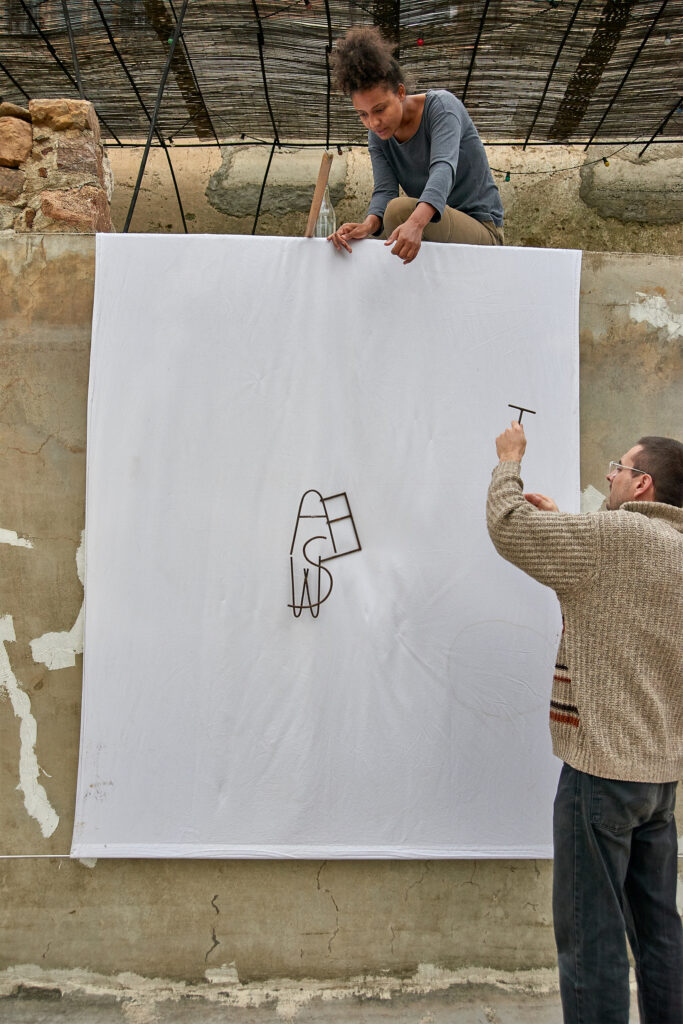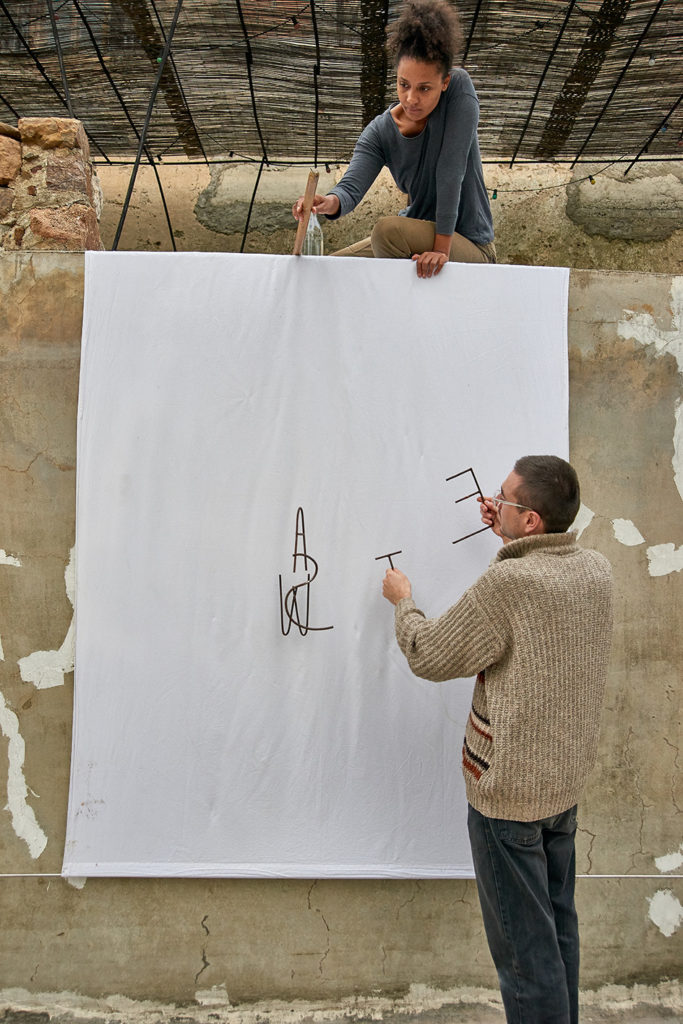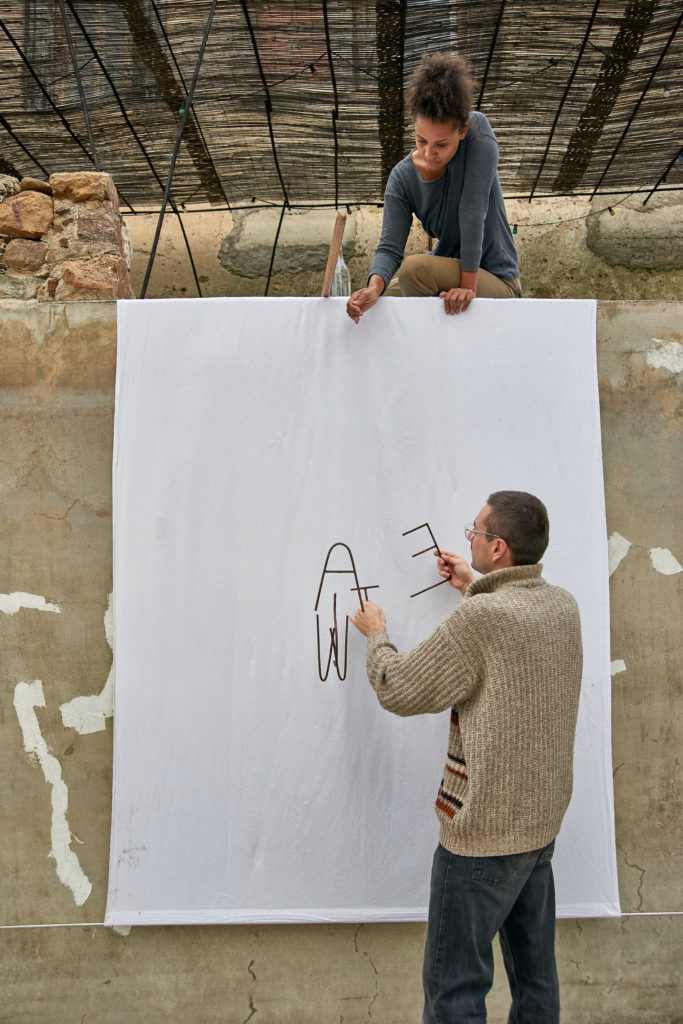ETWAS: An invitation to do something
Founded in 2016 by Kadia Dabo and Kévin Cabaret, Franco-German artists and designers, ETWAS (meaning “something” in German) develops an approach rooted in social interstices, embodying a relational ecology where art serves as a lever for transformation and care – a manifesto in action. Neither an artists’ collective nor a conventional mediation structure, this hybrid initiative took shape in Saint-Chinianais, a rural territory in southern France marked by isolation, economic vulnerabilities and social tensions, in response to contexts where precisely everything seemed to be lacking – infrastructure, resources, recognition. Paradoxically, it was in these very absences that the duo identified fertile creative ground.
Confronted with these derelict spaces, ETWAS empirically developed approaches to reinvent creative emergence – often adopting action-research methodologies. Their method, which questions how shared knowledge is constructed, transforms constraints into levers for action. Precarious public and associative structures, declining town centers, fragile agricultural and natural environments thus become ephemeral laboratories where a dialectic between contextualized knowledge and contemporary artistic practices is tested. This invisible work of reactivation – rebuilt networks of trust, created spaces for dialogue, bridges between worlds that ignored each other – precedes and makes possible each intervention, actualizing Tim Ingold’s thought that “every thing is a process underway.”
ETWAS’s singularity lies in its sensitive grounding: an attention to latent memories and imperceptible dynamics that reveals the richness of what’s already there. Through open protocols of empowerment, collection and expression based on gestures, objects and narratives, they activate this invisible living fabric to bring forth that unexpected “something.” Here, residents, students, people in precarious situations and those from capacity diversity become co-sovereigns of aesthetic processes, answering this vital question: how do we collectively build the knowledge and future of a place, a memory, a practice? This approach writes a new grammar of social sculpture where each collected fragment patiently recomposes the history of the commons.
From these projects emerges today a performative practice producing not works but transformative situations, responding to an urgent question: how can art truly “make society”? By revealing that marginalized contexts contain immense potential, ETWAS outlines a new economy of artistic making where process takes precedence over object, where sustainable activation replaces one-off intervention, where one creates with rather than for. This “something” that then emerges – both modest and essential – is none other than a patient repair of the social fabric through art itself.
Since 2024, Cologne (and Germany at large) has become the new terrain where ETWAS unfolds its research. While Saint-Chinian remains that original laboratory where a particular sensitivity to fragile contexts took root, this new Rhineland environment now calls for other modes of action: How can principles born from rural margins fertilize urban milieus? How can this relational ecology be transposed into different institutional realities? ETWAS is no longer quite the same, yet its essence endures: it is still about listening to that missing ‘something’ in order to collectively shape the ‘something’ that seeks to emerge.


